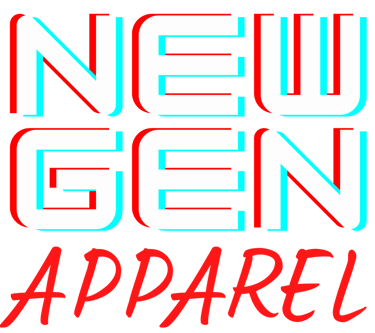
Your Customers Are Tired of Being Personalized
Marketers think they’ve mastered personalization — the data says otherwise. Discover why 95% of brands claim success while 96% of consumers remain frustrated, and how contextual intelligence is redefining marketing relevance in the privacy-first era.
Zues Ordaz



Every marketer believes they've mastered personalization. The data reveals something different.
Here's what I found digging into the current state of marketing: 95% of senior marketers consider their personalization strategies successful. Yet 96% of retailers struggle with effective personalization. That gap tells you everything about where we are right now.
We're living in a confidence bubble.
The industry spent the last decade treating personalization as the promised land. We invested in sophisticated tools, built complex customer profiles, and deployed algorithms that promised to predict exactly what each person wanted. The result? $611 billion per year lost in the US alone through poorly targeted campaigns.
That's not a rounding error. That's a systemic failure dressed up as innovation.
The Personalization Trap We All Fell Into
I've watched this pattern repeat across industries. Companies collect massive amounts of customer data, build elaborate segmentation models, and launch campaigns they're certain will resonate. Then the results come back underwhelming, and everyone blames execution rather than strategy.
The real problem runs deeper.
Personalization made a critical assumption: that knowing who someone is tells you what they need right now. It doesn't. A 35-year-old marketing director browsing at 2 AM has completely different needs than the same person browsing at 2 PM between meetings. Same person, same demographics, entirely different context.
We optimized for identity when we should have been optimizing for situation.
The data backs this up in uncomfortable ways. 42% of consumers find most personalized messages they receive "irrelevant or creepy." That's not a minority opinion anymore. That's nearly half your audience actively put off by the very thing you thought was your competitive advantage.
Think about what that means for your marketing spend.
Why Generic Marketing Actually Died
Let me be clear about something. Generic marketing deserved to die. Blasting the same message to everyone regardless of their interests, behaviors, or needs was always wasteful. Personalization represented genuine progress.
But progress isn't arrival.
Generic marketing failed because it ignored the individual. Personalization is failing because it ignores the moment. We moved from treating everyone the same to treating each person as a static profile. Both approaches miss the fundamental truth that people are dynamic, their needs shift constantly, and context matters more than demographics.
The marketing industry loves to declare victory prematurely. We did it with social media, content marketing, and now personalization. Each time, we mistake the next evolution for the final destination.
We're doing it again.
The Privacy Reckoning Changed Everything
Here's another friction point nobody wants to talk about. The entire personalization infrastructure was built on data collection practices that consumers increasingly reject. Only 37% of customers trust companies with their personal data. That trust deficit isn't getting better.
Privacy regulations tightened. Consumer awareness grew. The foundation personalization was built on started cracking.
Meanwhile, marketers doubled down. They allocated roughly 40% of their budgets to personalization in recent years, nearly double what they spent just a couple years earlier. More investment, less trust, declining effectiveness. That's not a sustainable trajectory.
The math stops working when your core strategy requires something your customers refuse to give you.
What Actually Works Now
The evolution beyond personalization has a name: contextual intelligence. Instead of asking "who is this person," it asks "what is this person experiencing right now?"
It's a subtle shift with massive implications.
Contextual intelligence analyzes the situation, not just the individual. It considers time of day, device being used, content being consumed, immediate needs, and environmental factors. It delivers relevance without requiring invasive personal data collection.
This isn't theoretical. It's already happening in pockets across the industry.
The companies winning right now understand that a message doesn't need to know your name, birthday, and purchase history to be relevant. It needs to understand what you're trying to accomplish in this specific moment and remove friction from that goal.
That's the difference between personalization and contextualization.
Best Practices for Contextual Marketing
Moving beyond personalization requires rethinking your entire approach. Here's what works based on what I've seen actually drive results.
Focus on behavioral signals over demographic data. What someone is doing right now matters more than who they are on paper. Track engagement patterns, content consumption, and real-time actions. These reveal intent more accurately than any profile ever could.
Design for situations, not segments. Stop creating campaigns for "marketing directors aged 30-40" and start creating campaigns for "someone researching solutions during their decision-making process." The situation defines the need.
Respect privacy as a competitive advantage. Build your contextual intelligence on first-party data and behavioral signals, not invasive tracking. Consumers will reward brands that deliver relevance without surveillance.
Test timing as aggressively as you test messaging. The same message at different times can produce wildly different results. Context includes when someone encounters your content. Optimize for that variable as much as any other.
Integrate AI for real-time adaptation. Contextual intelligence at scale requires technology that can analyze and respond to situations as they unfold. Static campaigns can't deliver dynamic relevance.
Measure engagement depth, not just conversion. Contextual marketing creates different success metrics. Someone who engages deeply with contextually relevant content is more valuable than someone who converts on a discount offer. Track the quality of interaction, not just the outcome.
The Real Competitive Edge
The marketing landscape is splitting into two groups. Those who keep pouring resources into increasingly sophisticated personalization engines, and those who are building contextual intelligence that respects both effectiveness and privacy.
One group is optimizing a dying strategy. The other is building what comes next.
The choice seems obvious when you look at the data. Consumers are fatigued by personalization, distrustful of data collection, and increasingly immune to demographic targeting. They respond to relevance, but relevance comes from understanding their context, not their identity.
Generic marketing died because it ignored the individual. Personalization is dying because it ignores the moment.
Contextual intelligence survives because it respects both.
The companies that grasp this distinction will define the next decade of marketing. Those that don't will keep wondering why their sophisticated personalization engines produce mediocre results while burning through budget.
The data already told us which path leads where. The only question is whether you're ready to listen.



"The best investment you can make is in your own business."
Partner with us to maximize your potential and profits!
Zues Ordaz
CEO New Gen Marketing Company
Complete the form, and let's discuss how we can work together to achieve outstanding results! 📲
Get Started
Ready To Take Your Business To The Next Level?
"Your information is confidential and will be used solely to tailor our services to your needs. We’re excited to partner with you!"












